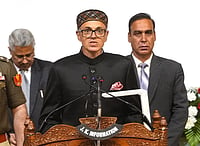The Supreme Court held a hearing on Monday regarding the case of the trainee postgraduate doctor who was raped and murdered on August 9. The bench, led by Chief Justice D Y Chandrachud, reviewed bribery and negligence allegations made by the victim's parents against Kolkata police.
Kolkata Rape-Murder Case: SC Orders Doctors To Return To Work, Hearing Adjourned Till Sept 17 | Top Points
The Supreme Court has adjourned the hearing on the RG Kar Hospital rape and murder case to September 17, directing the CBI to file a fresh status report by then. Doctors striking over the case have been ordered to resume work by 5 PM tomorrow or face disciplinary action.

The court also addressed the central government's claims that the West Bengal government has been uncooperative with the Central Industrial Security Force (CISF), which is providing security at RG Kar Hospital. Here are the top updates.
1. 23 Deaths Due to Doctor's Strike
Advocate Kapil Sibal, representing the West Bengal government, informed the Supreme Court that the ongoing doctor’s strike has resulted in 23 deaths. Over six lakh people have been denied medical treatment, with critical procedures like angiography being suspended. Sibal also mentioned that resident doctors are not attending outpatient departments (OPDs), and the healthcare system is at risk of collapsing if the strike continues.
2. CBI Sends Forensic Samples to AIIMS
Solicitor General Tushar Mehta, representing the CBI, reported that forensic samples from the victim had been sent to AIIMS and other laboratories for further examination. Mehta emphasised that the first five hours following such incidents are crucial for gathering evidence, and highlighted the challenges the CBI faced, as it began its investigation five days after the crime.
3. Supreme Court Demands Progress in Investigation
CJI Chandrachud instructed the CBI to submit an updated status report by September 17, emphasising that the investigation must continue without interference from the court. The bench refrained from making comments on the forensic samples in open court, allowing the CBI to proceed with their ongoing leads.
4. Warning of Disciplinary Action Against Doctors
The Supreme Court urged striking doctors to return to work by Tuesday at 5 PM, warning that disciplinary action could be taken if they do not resume their duties. CJI Chandrachud stated, "If doctors do not come to work, the government cannot be stopped from taking disciplinary action." He added that safety provisions for doctors, including separate duty rooms and CCTV cameras, would be ensured, but the medical professionals must reciprocate by resuming their services.
5. Statewide Protests Without Police Permissions
Kapil Sibal noted that protests by doctors have spread across West Bengal, with no permissions sought from the police. Public health services are being disrupted, and protestors have vandalised "May I Help You" booths set up for patient assistance. The strikes are in response to the handling of the murder case and the perceived lack of safety for doctors.
6. False Claims Over Death of Accident Victim
The Joint Platform of Doctors in West Bengal accused Trinamool Congress MP Abhishek Banerjee of making misleading claims. Banerjee had posted that a young boy from Konnagar died after bleeding for three hours without medical attention due to the strike. Doctors refuted this claim in a letter, stating that the boy had been promptly attended to at RG Kar Medical College and that he passed away despite receiving medical care.
Previously, the Supreme Court had established a 10-member National Task Force to create a protocol for safeguarding doctors and healthcare workers in hospitals. The Supreme Court sharply criticised the Kolkata Police for their delayed response in registering the case regarding the doctor's unnatural death. The court found the delay in registering the First Information Report (FIR) and the timeline of events to be "extremely disturbing."
The case has raised questions about procedural gaps in the handling of the investigation.
- Previous Story
 Baba Siddique Murder: Police Find Son Zeeshan's Photo In Shooter's Phone, Arrest 9 Accused | Top Points
Baba Siddique Murder: Police Find Son Zeeshan's Photo In Shooter's Phone, Arrest 9 Accused | Top Points - Next Story




















